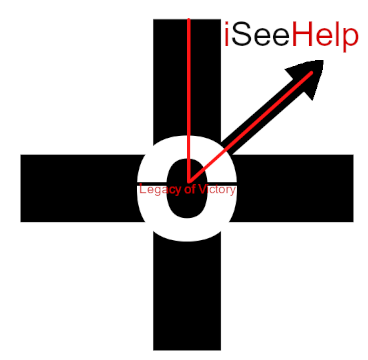Who-What-When-Where-Why-How
Which one is most important in making decisions?

Ask. Just ask. We forget to ask. A thought is not the same as thinking. Is this thought from God (encouraging, convicting) or from the enemy (discouraging, condemning)? If a thought is from God, listen to that still small voice and follow. If not, don't give the enemy a seat at your table and say, "Stop!"
Is it helpful for me to think that way? What results is that producing? You know the brain can be rewired even though some parts seem to be more fixed by the age of 5 than other parts. Old dogs can learn new tricks. Apply boundaries. Neuroplasticity is real. Brains and wiring can change. Impulsivity to say "Yes" can be reprogrammed to act on new thoughts like, "Let me think about that and get back to you."
Just because we think something does not mean that it is true. Consider the source. Always. You can redo. Rinse and repeat. Act on the new. Reload that computer mindset, new beliefs, new affirmations.
Who, what, when, where, why and how are the key questions any news article must include to provide a comprehensive overview of any topic at hand. By exploring these key components, readers can gain a better understanding of both subject and its significance. We will delve into their importance in journalism and how they shape stories as we explore how journalists use these queries to unearth truth, inform the public and hold those in power accountable - joining us on this fascinating exploration into shaping news we consume daily!
Who
It can be bewildering trying to understand our surroundings, the people in it and our own identities throughout life. Amid all of its mysteries and myths, life weaves together an intricate tapestry that comprises who we are; what we do; when, where and why; as well as how and when. Here, we will explore each intricate component further to shed light on various experiences that shape them for us all.
Who we are as individuals depends primarily on a variety of influences that converge to define us - genetics, upbringing, experiences, and interactions all play important roles in shaping who we are as individuals. Genetics, upbringing, experiences, interactions are all instrumental in shaping who we are - from biological systems composed of billions of cells operating together to social beings who take in influences from around them and experiences received - this multidimensional intersectionality makes each of us truly individual.
What
What we do consists of occupations, hobbies, actions, reactions and interactions in daily life that impact us in significant ways - be they purposeful or monotonous; exciting or mundane; decision-making or inaction. Aristotle said "we are what we repeatedly do", emphasizing the integral relationship between actions and identities; society places great significance on roles and activities we engage in defining who we are as individuals. A classic question like 'What do you do?" provides evidence for this assertion of their significance to who we are as individuals - showing its relevance as well.
When
Timing (when) often dictates our choices and actions in life. Our lives unfold into milestones--personal or public--which dictate our journeys. Timing our actions accurately is crucial, shaping their impact and outcomes; furthermore, stage of life we belong to and historical era can shape perspectives and decisions we make.
Where
Where refers to the physical, social, and emotional environments that shape our lives. Geographic influences play an enormous role as culture, climate, socio-polity, economics and other forces shape life experiences and preferences; school attendance; community memberships and demographic identities all play key roles. Attitudes toward people or places may also have profound effects on behavior preferences and decisions made throughout one's lifetime. Emotions play an equally influential role; heavily shaping choices and actions taken.
Why
The fundamental and captivating element of all these aspects is "why." 'Why" invokes our motivations, purposes, and goals that propel us through life; whether conscious or subconscious, rational or irrational, altruistic or selfish in nature, our motivations reflect our values beliefs and desires and are symbolic of who we are as human beings on their quests for knowledge, meaning, and truth.
Finally, "how" refers to the means by which we achieve our ends. How we do something reveals our skills, technologies, resources and methods used in its completion as well as any strategies or steps adopted in its pursuit - whether for plans implementation, goals achievement or simply everyday activities.
Who, What, When, Where, Why and How are essential elements in our lives. They set the context for our decisions, actions and experiences while shaping us in unique ways. How we navigate through and respond to them reveals us as individuals - unravelling these elements may lead to greater insight and perspective that enables us to navigate life more efficiently while making more informed decisions that allow for authentic living lives that bring fulfillment and authenticity.
Who: In this article, we have explored the significance of applying the "5 W's and 1 H" framework when writing for information that is comprehensive and well-rounded.
WWWWWH clarifies direction. John Trent identifies a process in life mapping. Choose this order:
- Why - Start here. Why am I doing this?
- What - Name it. What are you doing?
- Who - Who does what? You? Delegated to others?
- When - Is there a deadline? Is it fixed or arbitrary?
- Where - Location. Location. Location.
- How - Last. Purposely last. Do not start with how.
By leaving the how--the method, the strategy, the logistics--to the last essential. The process of completing the task is much easier when why starts the project.
If you don't know why you are doing what you are doing and who you are when thoughts appear anywhere in your mind, you may decide how to structure time to keep it, delay it, delegate it, or drop it.



